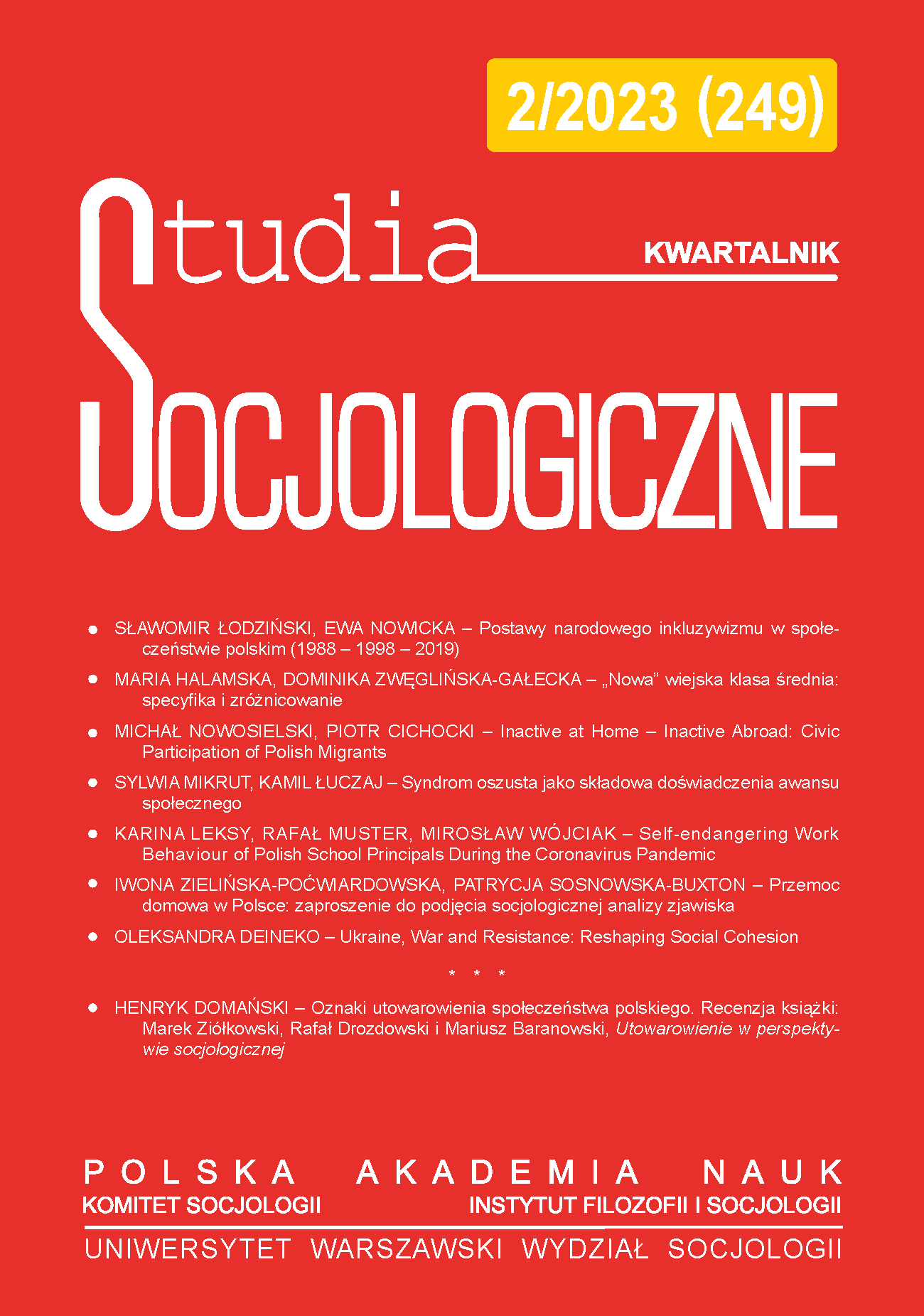Syndrom oszusta jako składowa doświadczenia awansu społecznego
Imposter Syndrome as a Component of the Upward Mobility Experience
Author(s): Sylwia Mikrut, Kamil ŁuczajSubject(s): Social Sciences, Sociology
Published by: Instytut Filozofii i Socjologii Polskiej Akademii Nauk
Keywords: higher education; upward mobility; social class; impostor syndrome; class cultures
Summary/Abstract: Sociological and psychological studies conducted in various cultural contexts suggest that the change in social position is often associated with experiencing pain and suffering. The article analyzes individual experiences of upward mobility associated with the impostor syndrome. The authors explore how Polish academics from the working-class background experience this complex state of feeling intellectually fraudulent. The research material comprises a collection of 25 autobiographical narrative interviews (BNIM). The article identifies the manifestations of imposter syndrome and discusses the role of socialization in its development. It concludes with the suggestions of how to deal with its symptoms. The prevalence of this syndrome and the fragmentary nature of the available information related to it suggest an urgent need to explore the issue, which may play a significant role in interpreting qualitative empirical data associated with upward mobility.
Journal: Studia Socjologiczne
- Issue Year: 249/2023
- Issue No: 2
- Page Range: 81-109
- Page Count: 29
- Language: Polish
- Content File-PDF

